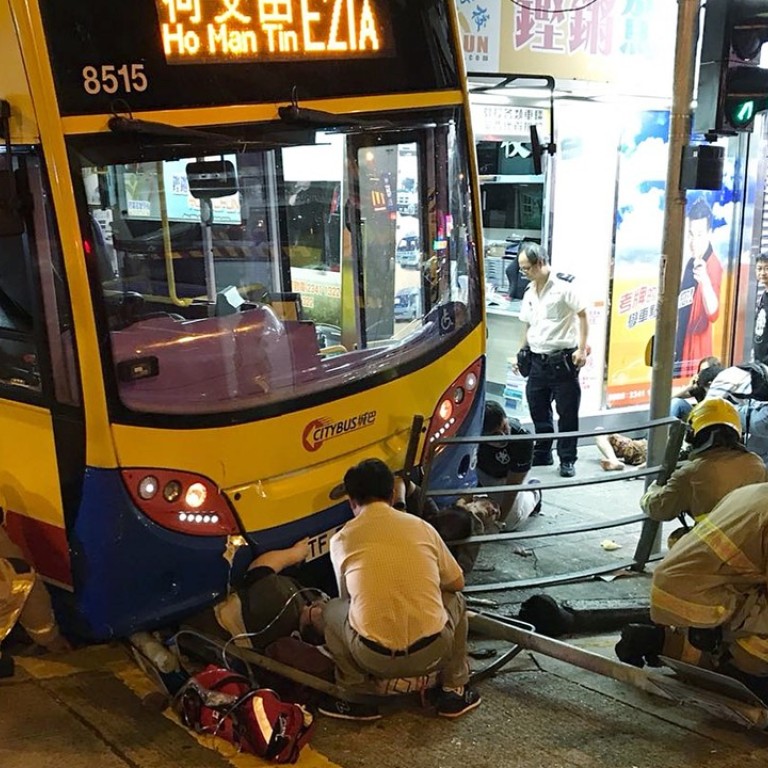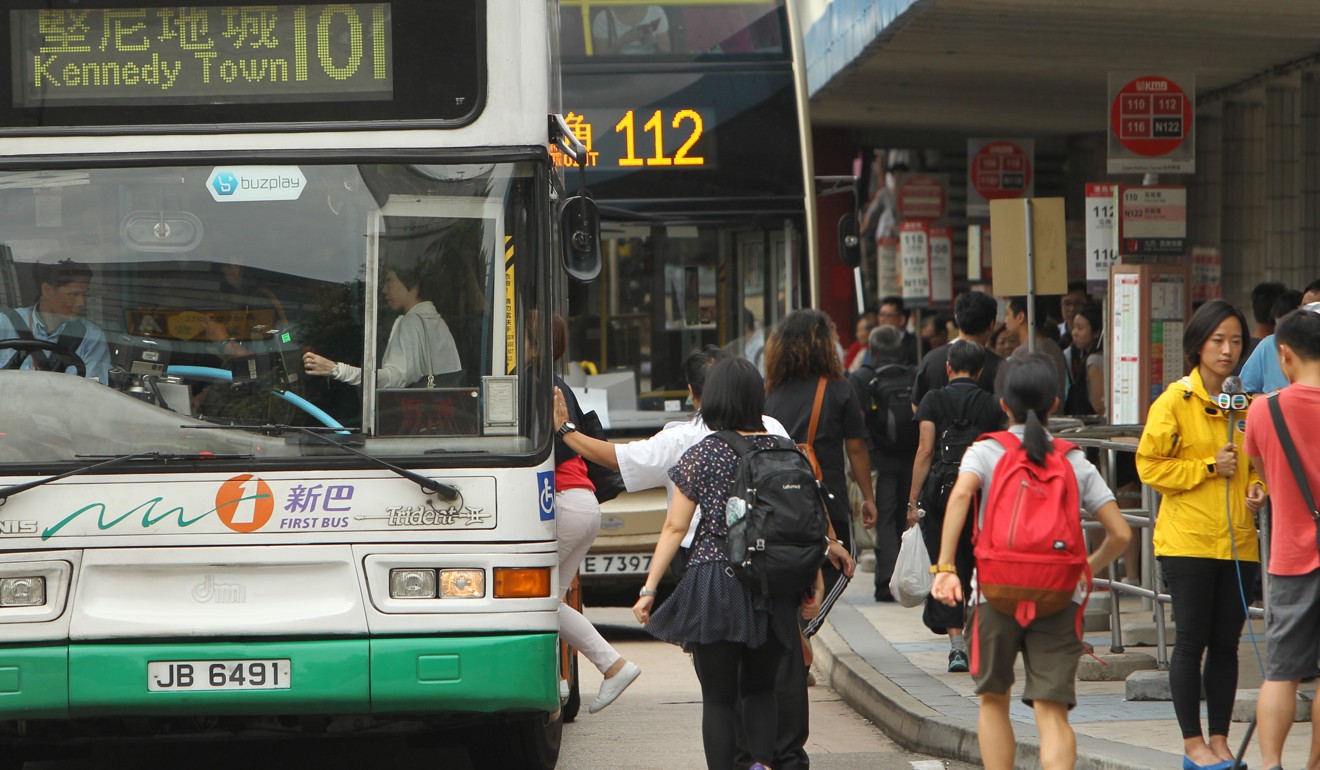
Explain This: are Hong Kong bus drivers dangerously overworked?
It’s a question many are asking in the city after a crash that killed three
Had the driver been working long hours?
The driver, 44, worked for Citybus. He was arrested on suspicion of dangerous driving causing death, and released on bail. He had worked 13-hour shifts for several days before the crash.
But William Chung Chak-man, head of operations for Citybus, said the driver had requested the run of long shifts. Chung declined to comment on the circumstances of the smash, except to say that the bus had not been speeding and the driver’s physical condition had been fine. Chung insisted that even though the driver had worked at least 13 hours a day for consecutive days, his hours and rest times were within the Transport Department’s guidelines.
Families of three killed in crash gather at Sham Shui Po junction to pay respects
What do those Transport Department guidelines say?
For every six hours bus drivers put in, they need to be given 20 minutes of rest, of which 12 minutes must come within the first four hours. And after working for six hours, they need another 30 minutes of rest. And time spent at the terminal getting ready to drive does not count as rest.
Drivers cannot work more than 14 hours per day, or spend more than 11 hours behind the wheel. They need at least 10 hours between shifts, and those who work eight hours or longer need an hour-long meal break.

In practice, how many hours are drivers doing?
According to a 2016 poll, 97 per cent of bus drivers work overtime, and 78 per cent said they worked 50 to 60 hours each week. Some 75 per cent said they got an average of seven hours of sleep per day.
The survey was conducted by the Civil Alliance for Advocating Standard Working Hours, and it involved interviews with 76 bus drivers from Citybus and New World First Bus Services Limited.
What are the rules like in other countries?
In the UK, bus drivers are required to take a break of at least half an hour after five and a half hours’ driving. Or they can take a 45-minute break after driving for eight and a half hours.
They cannot work more than 16 hours within a 24-hour period – and “work” includes the times they spend on non-driving work. Like drivers in Hong Kong, they need at least 10 hours between shifts.
Canada has two sets of rules, one for the north and another for the south, where the major cities such as Vancouver are. Under the rules for the south, bus drivers cannot drive for more than 13 hours in a day. They need at least eight hours between shifts, which is shorter than the buffer period in the UK and Hong Kong.
How did transport workers react to the crash ?
They have called on the government to overhaul franchise bus drivers’ pay and hours, to minimise overwork and lower the risk of crashes. The Federation of Bus Industry Trade Unions said it wanted the government to cut the maximum daily number of driving hours from 11 to 10, and total working hours from 14 to 12. The federation’s vice-chairman Henry Hui Hon-kit said base salaries for Citybus drivers started at just HK$13,000. Including other allowances, the average monthly take-home pay is HK$15,000, which Hui said was “definitely not enough for a driver to support a family”.

Do people in Hong Kong work long hours in general?
Yes. According to official data, the median number of working hours per week for Hong Kong men was 45.7 and 44.3 for women in mid-2016. A 2015 survey by banking group UBS found that Hongkongers worked more than 50 hours a week on average, the highest among 71 places it studied.
What did Hong Kong’s leader say after the fatal crash ?
She said: “It is not a question of legislation. It is a question of how we can ensure bus operations are safe in Hong Kong, which requires not only regulations from the government, but also full support and cooperation of the bus companies.”
Explain This takes a closer look at topical issues or news of the moment and presents it in easy-to-understand summaries

